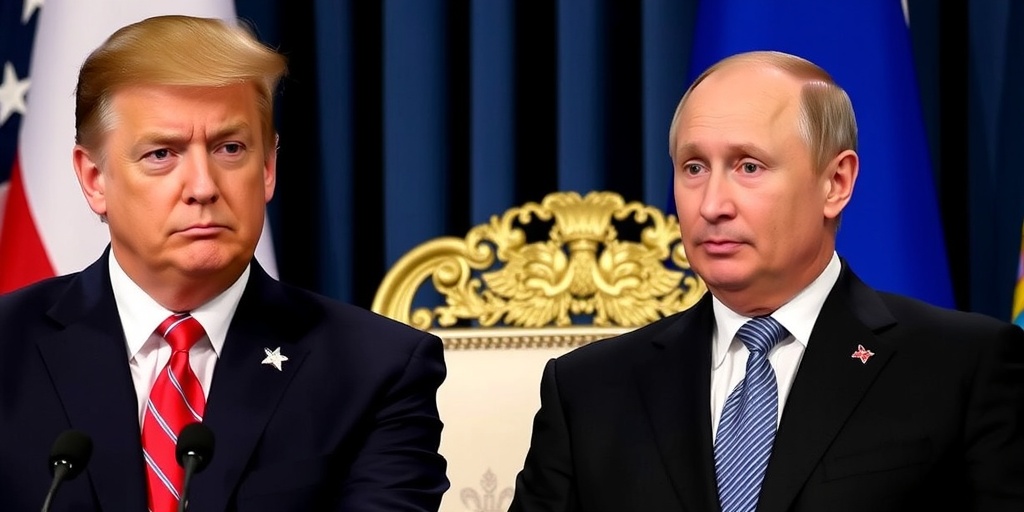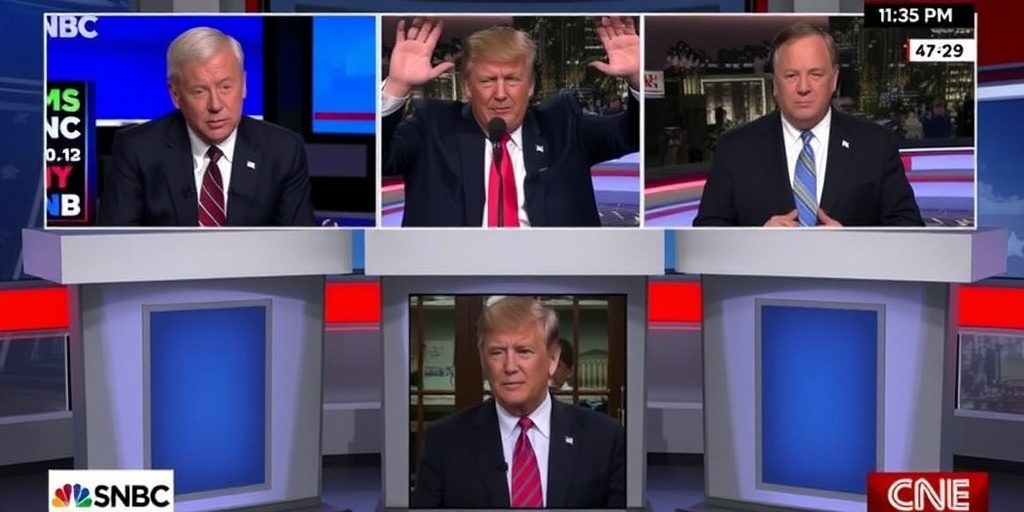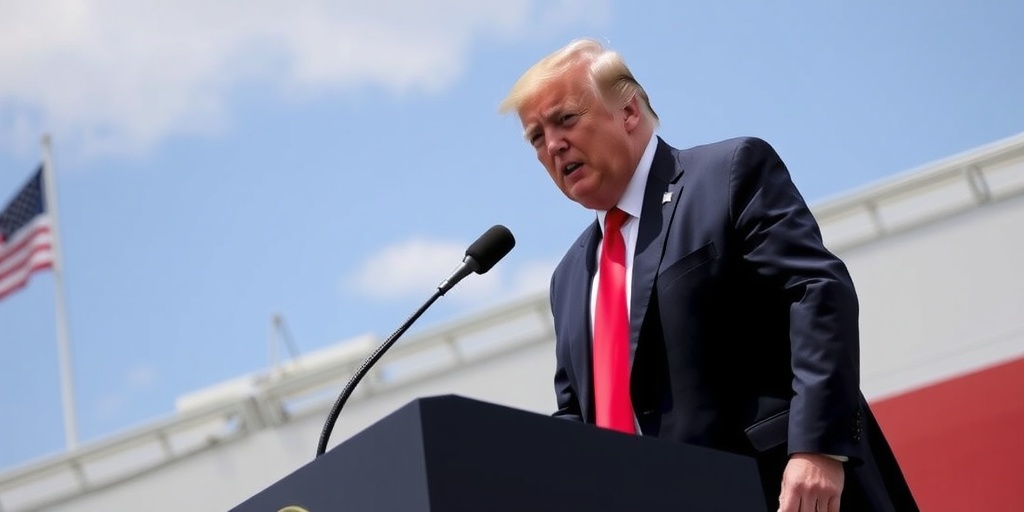Now Reading: Rubio’s Dilemma: Confronting Trump’s ‘Bloodthirsty’ Deal with Putin
-
01
Rubio’s Dilemma: Confronting Trump’s ‘Bloodthirsty’ Deal with Putin
Rubio’s Dilemma: Confronting Trump’s ‘Bloodthirsty’ Deal with Putin

Title: Marco Rubio’s Diplomatic Balancing Act: From Criticizing Putin to Engaging Russia
In the wake of the Russia-Ukraine conflict, Senator Marco Rubio finds himself navigating a complex political landscape, one that starkly contrasts with his previous assertions about Russian President Vladimir Putin. Rubio’s journey from a staunch critic of Putin to a member of a U.S. delegation engaging in negotiations with Kremlin officials highlights the shifting dynamics of U.S. foreign policy and the pressures lawmakers face.
Back in January 2017, during Rex Tillerson’s confirmation hearing for Secretary of State, Rubio posed a challenging question: “Is Vladimir Putin a war criminal?” At that time, Rubio, then a Florida senator, highlighted a global consensus on Putin’s actions, which included military atrocities and the suspicious deaths of his critics. Tillerson deflected, indicating the need for more evidence before making such a declaration. This exchange reflected Rubio’s commitment to moral clarity in foreign policy, emphasizing the importance of the Secretary of State’s role in voicing ethical stances on international issues.
Fast forward to 2022, following Russia’s invasion of Ukraine, Rubio continued to assert his principles, urging the Biden administration to express unwavering support for Ukraine. His criticisms of Putin intensified as he labeled the Russian leader with terms such as “bloodthirsty” and “a butcher,” and even suggested that the world would welcome Putin’s overthrow. However, in a televised interview shortly after the November elections, Rubio shifted his stance, suggesting that the conflict in Ukraine had reached a stalemate and advocating for a negotiated settlement. "You don’t have to be a fan of Vladimir Putin to want to end the war," he stated.
This evolving position has led Rubio to take a leading role in a senior U.S. delegation negotiating with Kremlin officials, a significant development considering the diplomatic freeze that has characterized U.S.-Russia relations in recent years. Tasked by former President Trump with seeking an agreement to end the war, Rubio’s position has sparked debate and criticism among analysts and fellow lawmakers.
John R. Bolton, Trump’s former national security advisor, highlighted the difficult position Rubio finds himself in. While knowledgeable about international relations, Rubio must navigate an environment where experience and expertise may be overshadowed by political expediency. Bolton criticized Trump’s characterization of Ukrainian President Volodymyr Zelensky as a “dictator,” arguing that it echoed Russian propaganda.
Despite his previous harsh rhetoric, Rubio’s recent statements suggest a willingness to engage Russia in dialogue. He has indicated that testing Russia’s sincerity regarding peace is essential. "It’s not an easy position for Rubio to be in, but he believes it is worth reaching out to Russia," an administration official explained, noting that Rubio remains skeptical of Putin’s intentions.
However, Rubio’s remarks during negotiations in Saudi Arabia have drawn ire from various quarters, with critics arguing that he seemed to accept Russian narratives uncritically. Some have labeled his suggestions that all sides must concede during negotiations as misguided, especially when Russia has shown no inclination to make concessions, famously asserting through Foreign Minister Sergey Lavrov that it would not return any territory taken during the conflict.
Andrea Kendall-Taylor, a Russia expert, expressed profound concerns over Rubio’s emerging stance. After hearing him speak positively about the potential for negotiations, she remarked, "My jaw fell to the floor." She criticized the notion that Russia might be open to compromising, emphasizing the lack of evidence supporting this belief.
Historically, U.S. leaders have engaged with adversaries while maintaining a critical stance. Figures like Secretary of State John Kerry and envoy Richard Holbrooke have negotiated with hostile entities in the past while ensuring that relations remained tense. However, the current trajectory of U.S.-Russia relations under Trump appears to favor a warmer engagement, with both sides potentially seeking a return to normal diplomatic relations.
As Rubio maneuvers through this multifaceted diplomatic landscape, he balances his commitment to address America’s strategic interests with the realization that Putin remains a potent adversary. Throughout his career, Rubio has warned about the dangers of underestimating Russia’s intentions, and the challenge now lies in how he reconciles that history with the current administration’s diplomatic outreach.
In conclusion, Marco Rubio’s evolving relationship with U.S.-Russia diplomacy reflects a broader struggle faced by lawmakers in addressing complex global issues amid shifting political landscapes. His ability to effectively navigate this dichotomy will play a crucial role in shaping both his political legacy and the future of U.S. foreign policy.
Stay Informed With the Latest & Most Important News
Previous Post
Next Post
-
 01New technology breakthrough has everyone talking right now
01New technology breakthrough has everyone talking right now -
 02Unbelievable life hack everyone needs to try today
02Unbelievable life hack everyone needs to try today -
 03Fascinating discovery found buried deep beneath the ocean
03Fascinating discovery found buried deep beneath the ocean -
 04Man invents genius device that solves everyday problems
04Man invents genius device that solves everyday problems -
 05Shocking discovery that changes what we know forever
05Shocking discovery that changes what we know forever -
 06Internet goes wild over celebrity’s unexpected fashion choice
06Internet goes wild over celebrity’s unexpected fashion choice -
 07Rare animal sighting stuns scientists and wildlife lovers
07Rare animal sighting stuns scientists and wildlife lovers




















